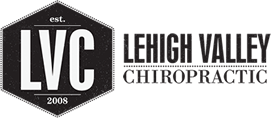Frozen Shoulder (Adhesive Capsulitis)
What is Frozen Shoulder?
Frozen Shoulder occurs when adhesions develop in the joint capsule of the shoulder; the medical term used to describe frozen shoulder is adhesive capsulitis. The condition is characterized by three stages: pain stage, frozen/stiff stage, and the thawing stage. Pain may develop as a result of a surgery, trauma or illness, or it may appear without cause; if you are suffering from this condition, you may notice pain that is often described as an ache in the shoulder joint which becomes worse at night. Over time, stiffness develops; you may be unable to lift your arm to the side or overhead. Activities that demand unrestricted shoulder motion may become increasingly difficult. Over time and with the appropriate management, the pain and stiffness associated with frozen shoulder should begin to thaw. Although researchers are unable to determine the exact cause of the condition, certain individuals (women, over the age of 40, injury to the arm that requires immobilization of the shoulder, diabetes, autoimmune diseases, and thyroid problems) are more prone to developing it. Although it is generally only seen in one shoulder, in certain cases, both shoulders area affected. If early interventions are instituted, you may be able to reduce the duration and severity of the condition; if you suspect that you have frozen shoulder, contact your chiropractor.
Our hands-on treatment methods can remove adhesions associated with frozen shoulder.
-Dr Scott Bentson
How is Frozen Shoulder Diagnosed?
Frozen shoulder is generally diagnosed by detailed history and physical exam. Your chiropractor will ask you questions like what makes it worse, what makes it better, how/when it began, and what it feels like. Next, an exam will be performed; your chiropractor will palpate (examine by touch) the anatomical structures of the shoulder. He/she will then assess the shoulder’s motion and perform specific orthopedic tests. Occasionally imaging will be ordered to rule out other conditions; however, frozen shoulder cannot be seen on an x-ray or MRI.
What Are the Options for Treating Frozen Shoulder?
Frozen shoulder is commonly evaluated and successfully treated at Lehigh Valley Chiropractic. In many cases, conservative management is successful and most people who suffer from frozen shoulder will not require invasive treatments like surgery. The chiropractors at Lehigh Valley Chiropractic will develop a treatment plan that will work for you. Joint manipulation and manual therapy (such as Active Release Technique), therapeutic strengthening/stretching exercises, and topical analgesics are often included in that plan. Looking for a drug, injection and surgery-free way to thaw that frozen shoulder? The chiropractors at Lehigh Valley Chiropractic may be the alternative you have been looking for.
- Diagnosis and management of adhesive capsulitis. Manske RC, Prohaska D.Curr Rev Musculoskelet Med. 2008 Dec;1(3-4):180-9. A rational management of tennis elbow. Kamien M. Sports Med. 1990 Mar;9(3):173-91. Review.
- Comparison of the early response to two methods of rehabilitation in adhesive capsulitis. Guler-Uysal F, Kozanoglu E. Swiss Med Wkly. 2004 Jun 12;134(23-24):353-8.

 610-868-6800
610-868-6800



